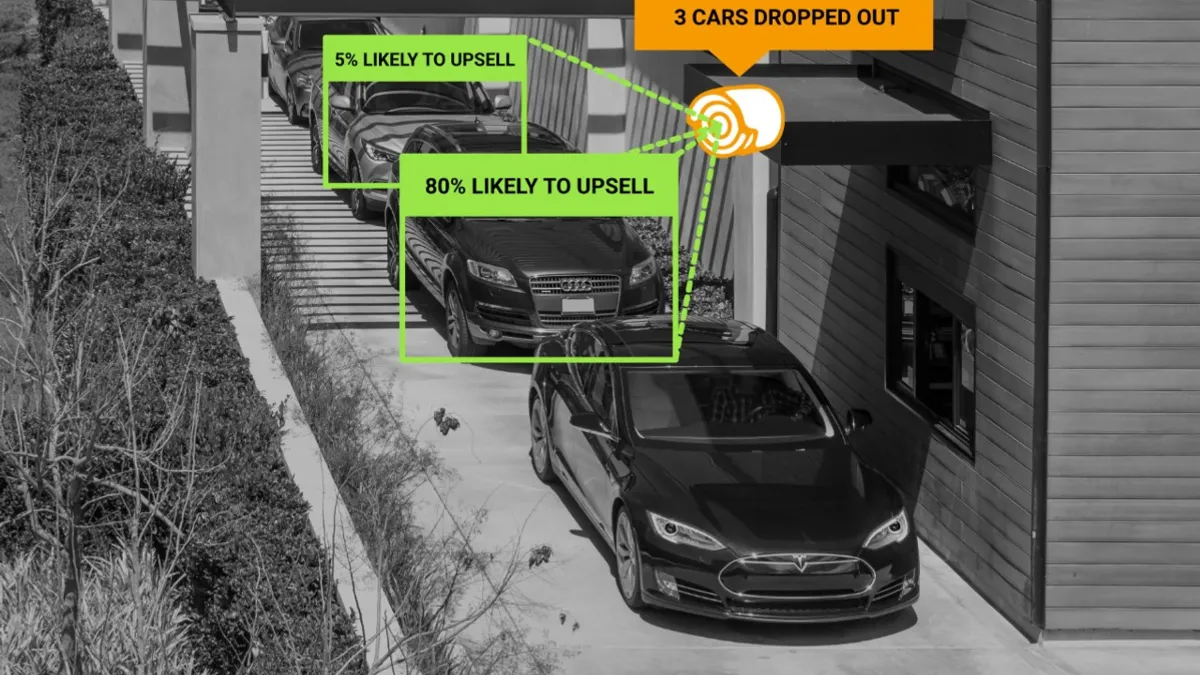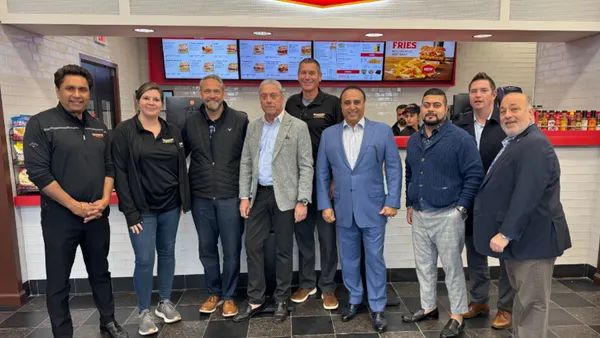Dive Brief:
- Restaurant technology company Presto launched a product suite called Staff Multiplier to provide tools to help restaurants contend with the current labor crisis, according to a press release sent to Restaurant Dive.
- Staff Multiplier offers various technologies that increase guest-to-staff ratios, improve speed and quality of service, identify bottlenecks and improve the guest experience, according to the release. This includes handheld tablets that can be used at the drive-thru or on the dining floor to pull up loyalty information and take payments, voice ordering technology, pay-at-table tablets and QR codes to order and pay.
- Restaurants are increasingly embracing technology, ranging from contactless ordering and payment solutions to back-of-house robots, to supplement short-staffed operations as an industrywide labor shortage persists.
Dive Insight:
While the pandemic forced many operators to quickly adopt new technology to maintain safe operations for both staff and customers, it continues to shape strategy — especially since technology can offer ways to find workers, schedule shifts and offer automation and payment options without leaning heavily on staff members.
Presto's newest service is tailored to meet staffing challenges as mega chains and independent operators alike scramble to build their teams back up to pre-pandemic levels amid surging diner demand. The company has been building up its suite of products, which include an AI-based platform and wearables, for a few years. It works with several full-service chains, like Chili's, Outback Steakhouse, Applebee's and Denny's.
"In these initial days of the reopening, guest experience will determine a restaurant's ability to rebuild a happy customer base," Rajat Suri, founder and CEO of Presto, said in a press release. "The key is to deploy and integrate technology early on to stay ahead of the curve."
Any tools that can help operators run smoother will be particularly helpful to get customers to return. Full-service restaurants, for example, have struggled to maintain a high-level of service and customers have complained about long wait times even though there are few people in the restaurant, according to Black Box Intelligence data. Presto's products also include the ability to use cameras to track throughput and order accuracy, identify issues and implement real-time solutions, which could help mitigate diner frustration.
Full-service operators were also more likely to invest in technology in 2020 than QSRs, with 50% of casual dining and 50% of fine dining operators reporting they devoted more resources to customer-facing technology, according to the National Restaurant Association's 2021 State of the Restaurant Industry report.
Not all customers are seeking out technology-driven dining experiences, however. Even with the additional technology, 64% of diners said they would prefer traditional table service compared to 36% that would use a tablet or an app on their smartphones while dining in. Still, as the labor shortage drags on, diner expectations for on-premise experiences could evolve to better tolerate more self-service interactions.










